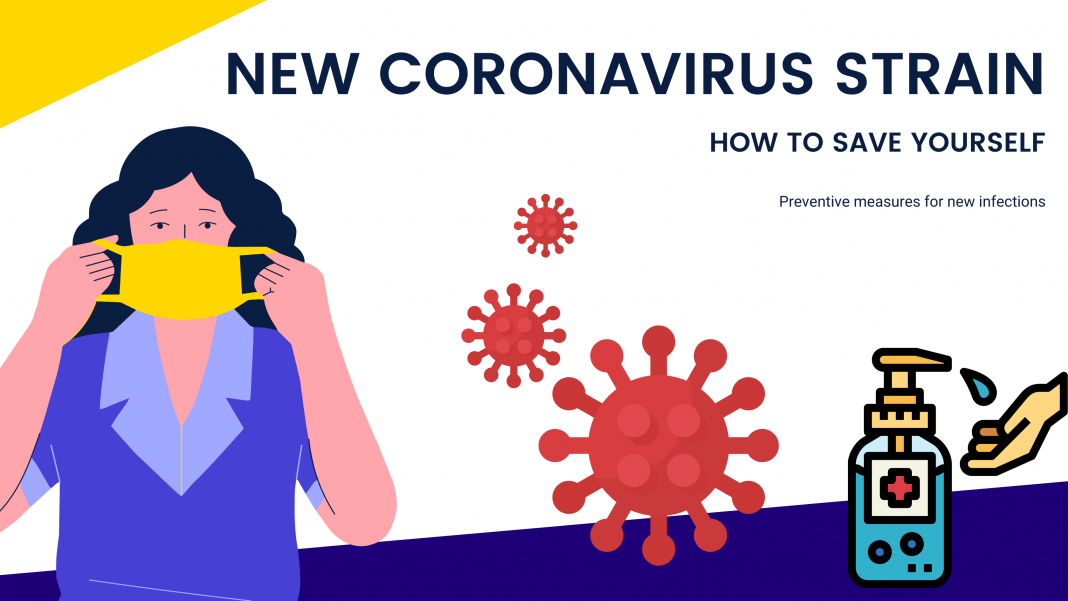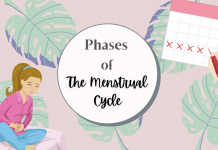Hi there. As you might have heard in the news that cases of infection due to a new coronavirus strain have been reported in some countries like Italy, the UK, and Australia.
Just as we thought the pandemic was coming to an end, the SARS Covid-19 virus took us all by surprise (much to our shock).
Many coronavirus variants have been seen ever since the beginning of the pandemic. However, evidence suggests that the new mutant called B.1.1.7, which showed up around September, has proved to be more easily transmissible than its other previous forms. This strain has been the cause of 60% of infections in London and its surrounding areas.
New coronavirus strain discovered: Here’s how you can beat it
Studies suggest that the new coronavirus strain is 50% more transmissible and could even be more potent and the preventive measures taken for the previous variant wouldn’t suffice.
Here are some measures you can take to save yourself and your loved ones from catching the infection.

Keep yourself updated
As per WHO “The best way to prevent and slow down transmission is to be well informed about the COVID-19 virus, the disease it causes and how it spreads.” So, it is better to keep up with the updates about the virus.
- You should know what symptoms you need to look out for. According to WHO, “Know the full range of symptoms of COVID-19. The most common symptoms of COVID-19 are fever, dry cough, and tiredness. Other symptoms that are less common and may affect some patients include loss of taste or smell, aches and pains, headache, sore throat, nasal congestion, red eyes, diarrhea, or a skin rash.”
- Also, keeping up with the news will be beneficial as you can keep up if your state? district authorities have issued any new guidelines to be followed. There are new restrictions being imposed in many areas like night curfew on Karnataka, India, and even complete lockdown in the UK.
- Keep a check if there are any cases in the area you live in. You can download a tracking app where you can keep a check on the severity of the situation in your area or the places you visit.
Use masks correctly
This one sounds pretty obvious but in reality, people have been spotted going around without masks. It is essential to wear a mask to prevent the transmission of the virus. Wearing a mask is only effective if worn correctly.
- The mask is supposed to cover the chin, nose, and mouth.
- When you take the mask off, make sure you store it in a clean plastic bag.
- Wash the mask at least once in 2 days if it is a fabric mask
- Dispose of the medical masks in a trash bin
- Don’t use masks with valves.
- Do not touch the mask, and wash your hands if you happen to do so
- Wash or Sanitize your hands before putting the mask on
For more information, read When Should You Wear a Mask before Going Outside and Why You Must Wear Masks, Benefits, Protection Against COVID-19
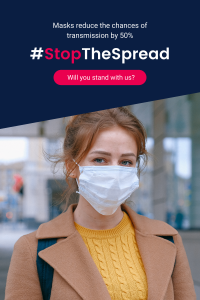
Practice good respiratory etiquette and hygiene
As per WHO guidelines, “The COVID-19 virus spreads primarily through droplets of saliva or discharge from the nose when an infected person coughs or sneezes, so it’s important that you also practice respiratory etiquette” Here are a few things you can do-
- Always wear a mask when leaving the house
- Make sure the mask covers both your mouth and nose
- If you are to cough, instead of using your hand, use your flexed elbow.
- Wash your hands with soap and rub your hands with an alcohol-based sanitizer
- Don’t use masks with valves
- Avoid touching your eyes, nose, and mouth
- Keep the surfaces that are touched regularly, clean. Use a disinfectant to clean surfaces.
- Clean your phone screen, and use earphones if you can, to avoid contact between your face and screen.
- Refrain from smoking, and other similar activities that weaken the lungs
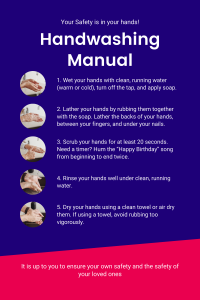
Maintain good ventilation
Over-crowding, especially in closed spaces can be the cause of transmission of the virus. So, you should follow the following guidelines-
- Practice social distancing. Maintain a distance of at least 1 meter with individuals, especially if they are coughing or sneezing.
- If you need to meet up with people, it is safer to gather outdoors in the open air than in a room.
- Avoid crowds, especially when in closed spaces.
- Make it a norm to wear face masks when meeting with people
Stay home Stay safe
- Avoid going outside unnecessarily
- If you have guests over, or if you are in a crowded indoor setting, open the windows to allow ventilation.
- If you have fever, cough, or difficulty breathing, call your local health helpline number. Call your local helpline number if you are experiencing any coronavirus symptoms.
Improve your overall health
- Start exercising at home. There are a number of home-workout videos available on youtube for free.
- Go to sleep and wake up around the same time every day. Improving your sleep patterns can help you boost immunity by regulating your melatonin activity.
- De-stress yourself. Stress can cause your immunity to weaken. Activities like yoga, meditation, journaling, painting, etc. can prove to be very good stress busters. These times can be very tough, and you may require some emotional support. Talk to someone you trust, reach out to them for help. Talk to a therapist if stress and anxiety cause disruption in your daily life.
- Stay connected to your loved ones. Be there to help anyone in need.
Symptoms to look out for
The classic coronavirus symptoms are-
- Fever
- Dry cough
- Sore throat
- Runny and stuffy nose
- Chest pain and shortness of breath
- Loss of senses like taste and smell
- Vomiting
- Unexplained Diarrhea
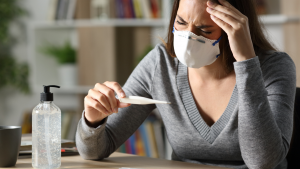
Even though most symptoms of the new strain are similar to the previous one, the Centre for Disease Control and Prevention (CDC) has published five warning signs for COVID-19 that need to be taken care of as and when it appears.
The 5 symptoms are as follows
- Breathing problem
- Confusion
- Persistent chest pain
- Tired and unable to stay awake
- Bluish lips or face
It is only advised to seek medical attention if you suffer from any of the above-mentioned symptoms. As responsible citizens, it is our duty to ensure our own safety and the safety of the ones around us by following the guidelines.
Who is at risk
Earlier, it was told that mostly the elderly and people with a compromised immune system were the ones who were most at risk. However, with the new coronavirus strain, it was found that kids too are at risk.
People with lifestyle diseases like diabetes, tuberculosis, and other diseases that affect the immune system.
Even if you do not belong to any high-risk group, you can still get the virus. Also, you can spread it without actually experiencing the symptoms.
Remember: Anyone can get the virus so it is important to follow the safety measures.
If you found ‘New coronavirus strain discovered: Here’s how you can beat it’ useful, also read Who is more Vulnerable to Corona Virus, Guidance for all

